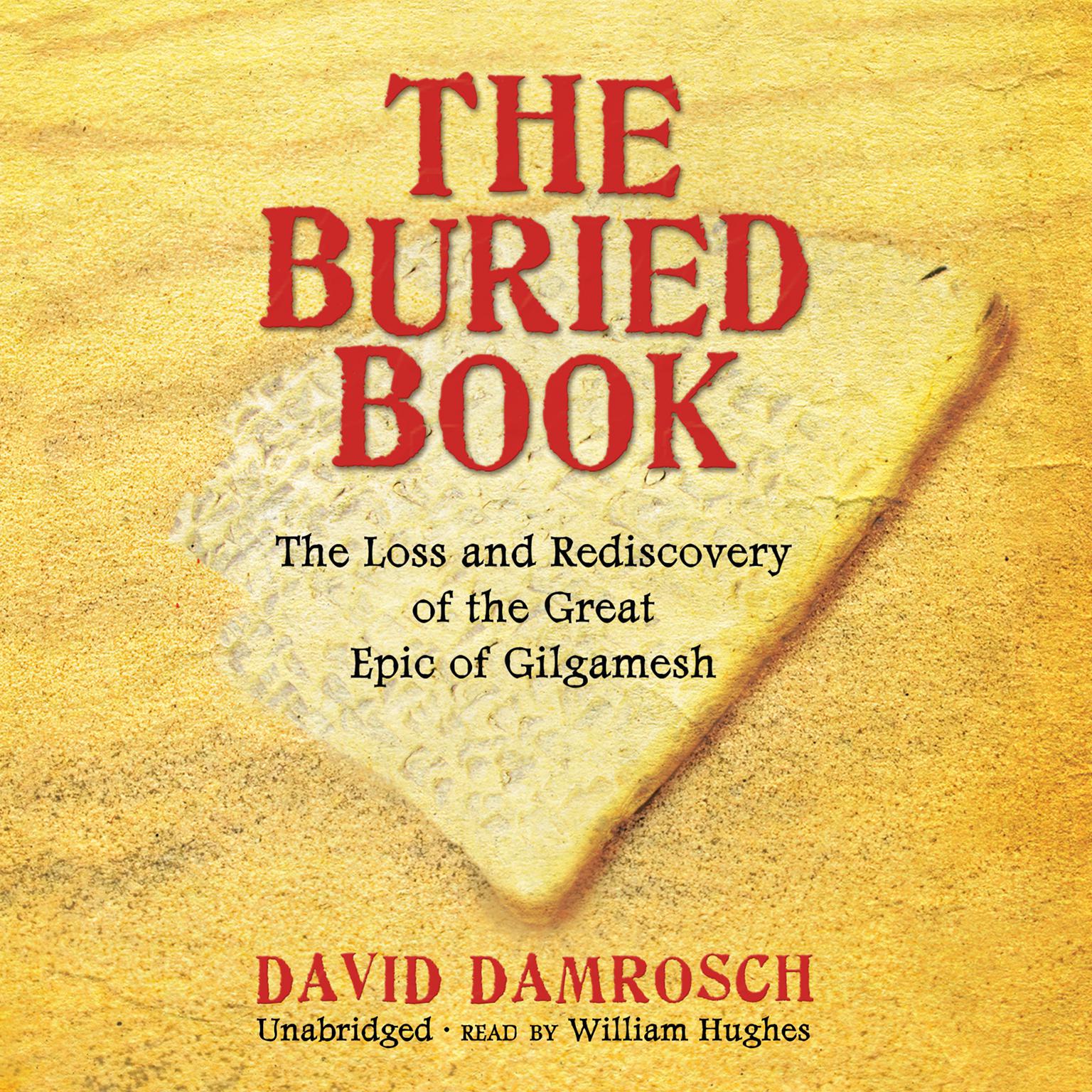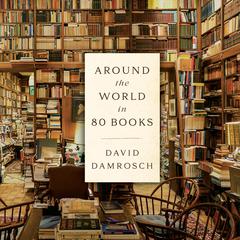 Play Audiobook Sample
Play Audiobook Sample
The Buried Book: The Loss and Rediscovery of the Great Epic of Gilgamesh Audiobook
 Play Audiobook Sample
Play Audiobook Sample
Quick Stats About this Audiobook
Total Audiobook Chapters:
Longest Chapter Length:
Shortest Chapter Length:
Average Chapter Length:
Audiobooks by this Author:
Publisher Description
Etched in the wedge-shaped letters known as cuneiform on clay tablets, the Epic of Gilgamesh stands as the earliest classic of world literature. Its earliest surviving fragments date back to the eighteenth century BC, more than 3,700 years ago. In The Buried Book, David Damrosch tells the story of George Smith, a self-taught linguist, who one momentous afternoon in 1872 was working at the British Museum, going through a pile of Layard’s clay tablets, when he suddenly realized that he was reading about “a flood, storm, a ship caught on a mountain, and a bird sent out in search of dry land.”
Daring adventurers, fearless explorers, ancient kings, gods, and goddesses come to life in this riveting story of the first great epic and its rediscovery in the nineteenth century.
Download and start listening now!
""...A group of scribes working together between about 3300 and 3200 BCE to formulate the basic norms of a workable writing system.....It is only between 2600 and 2500 BCE, a century or two after Gilgamesh's death, that texts appear that can be called literature.....About 2100 BCE a few Sumerian kings begin to take a greater interest in literary production.""
— Chuck (4 out of 5 stars)
Quotes
-
“Damrosch’s fascinating literary sleuthing will appeal to scholars and lay readers alike as they ponder the intricacies of cuneiform, the abuses heaped on the Iraqi Rassam and the working-class Smith by the Victorian class system, and recent Gilgamesh-inspired novels by Philip Roth and Saddam Hussein.”
— Publishers Weekly (starred review) -
“As astounding as the content of the Epic of Gilgamesh, in which the questing hero travels to the underworld and back, is the manner of its discovery and recovery…Damrosch’s summary narrative of the epic excels both in dramatization and thematic explanation…A superb and engrossing popular presentation.”
— Booklist (starred review) -
“William Hughes reads with a lively tone that makes the story of the epic’s rediscovery as exciting as the epic itself, drawing readers into the lives and ambitions of Smith, who gradually grew into the role of archaeological explorer, and Hormuzd Rassam, who continued Smith’s work after his death.”
— AudioFile
The Buried Book Listener Reviews
-
" I had high hopes for this book. There were parts that met those expectations, but not enough. I'm glad I read it though. Your mileage may vary. "
— Wendy, 2/11/2014 -
" Interesting topic and reasonably well written. Damrosch tells the story backwards starting with the man who first deciphered the lost epic of Gilgamesh, linking him to the men who discovered the cuniform tablets, then to the ruler who collected the tablets in his library. It was a different approach to tell the tale in reverse, but to make sense of it, Damrosch had to fill in a few gaps, so in a few places he had to jump out of sequence and anticipate his next subject. It was a worthwhile effort, but I wonder how a traditional linear narrative would have worked? "
— Andrea, 2/6/2014 -
" The story of the discovery of the Babylonian epic of Gilgamesh, which offers an earlier version of the Biblical account of the Great Flood. Fascinating stuff. The author could have spent less time on the life stories of the Victorian explorers/archeologists who made an industry out of uncovering Assyrian artifacts and more time on the actual archeological expeditions and discoveries, but that's a minor quibble. Now onwards to actually reading Gilgamesh, which I am ashamed to admit was not on my college reading list. "
— Jan, 1/27/2014 -
" This is a wonderful book about the discovery and decipherment of the first epic ever written. I love reading about archaeology, but this book also tells poignant stories about the people involved in the process that ranged over several decades. "
— Allyson, 1/25/2014 -
" i actually have the hardcover. "
— bridget, 1/15/2014 -
" Archeology. History. Literature. Very, very good! "
— Summers, 1/14/2014 -
" Overall, it was very interesting. Connects the finding of the story of Gilgamesh to its past and current events. At times it wanders into uninteresting minutia. "
— Miriam, 1/11/2014 -
" All and more that you wanted to know about Gilgamesh. Most interesting in its recounting of the 19th-century scholars who discovered, translated, and fought over such archaeological finds. "
— William, 12/29/2013 -
" mostly about archaeology and the personalities involved in unearthing GILGAMESH. of interest if you're really into both of those things. well written and paced. "
— Heather, 12/16/2013 -
" Part ancient history, part mythology, part Indiana Jones, and part contemporary psychology (Saddam Hussein) this was a really interesting dissection of Gilgamesh and the epic's influence on world culture. Definitely useful as a companion to reading the epic itself. "
— Kathy, 12/9/2013 -
" Interesting history of a book from the very far and relatively recent past and the beginnings of literature in the ancient world. "
— Mrskathleen, 7/1/2013 -
" An interesting story. I enjoyed learning the history but found it dragged in the last half. "
— Jennie, 10/25/2012 -
" History meets Indiana Jones archeological adventures. Fascinating recounting of the discovery of the libraries at Niniva in modern day Iraq, and how these clay tablets recording the early history of the Middle East are still impacting our world society today. Highly readable and enjoyable. "
— Nick, 9/25/2012 -
" if you're into tales of museum intrigue (and who isn't?) then check this out. "
— Sara, 8/8/2012 -
" Covers the life stories of the people who found the Gilgamesh Epic in modern day Iraq. Also tells the story of Gilgamesh and then looks at the influences of Gilgamesh on modern literature. "
— Jef, 7/7/2012 -
" This is an incredible story about the finding and translating of The Epic of Gilgamesh. "
— Morgan, 2/27/2012 -
" Wow, if you like the tale of Gilgamesh, this is a wonderful non-fiction history of how the tablets were found. It reads like a mystery novel or like tales of Indiana Jones. Easy read, a little dry, but very well laid out and historically accurate. "
— Kathy, 2/17/2012 -
" This is hands-down the best book to start learning about the oldest human civilization. Leads to many other great books! "
— Cyril, 6/4/2011 -
" Wow, if you like the tale of Gilgamesh, this is a wonderful non-fiction history of how the tablets were found. It reads like a mystery novel or like tales of Indiana Jones. Easy read, a little dry, but very well laid out and historically accurate. "
— Kathy, 12/16/2010 -
" Uncovers the history of the epic of Gilgamesh as an archaeological dig--from most recent to earliest. I am glad Damrosch corrected the record and showed that the discoverer of the library of Ashurbanipal was Hormuzd Rassam, not the Englishmen who tried to diminish Rassam's efforts. "
— Zjay, 10/19/2010 -
" As story told a bit disjointed . More about the archaeologists . "
— Renee, 10/12/2009 -
" Covers the life stories of the people who found the Gilgamesh Epic in modern day Iraq. Also tells the story of Gilgamesh and then looks at the influences of Gilgamesh on modern literature. "
— Jef, 9/14/2009 -
" Starts with the battle to translate Gilgamesh and works backward through the archaeology,to ancient Babylon and the evolution of the myth. <br/>I enjoyed the section about elitist Victorian scientific culture much more than the ancient Mesopotamian history. "
— Bluezamia, 6/13/2009 -
" Overall, it was very interesting. Connects the finding of the story of Gilgamesh to its past and current events. At times it wanders into uninteresting minutia. "
— Miriam, 4/12/2009 -
" This is a wonderful book about the discovery and decipherment of the first epic ever written. I love reading about archaeology, but this book also tells poignant stories about the people involved in the process that ranged over several decades. "
— Allyson, 12/6/2008
About David Damrosch
David Damrosch is a professor of English and comparative literature at Columbia University. He is the author of books on the Bible and on world literature and is the general editor of The Longman Anthology of World Literature. He lives in New York City.
About William Hughes
William Hughes is an AudioFile Earphones Award–winning narrator. A professor of political science at Southern Oregon University in Ashland, Oregon, he received his doctorate in American politics from the University of California at Davis. He has done voice-over work for radio and film and is also an accomplished jazz guitarist.




